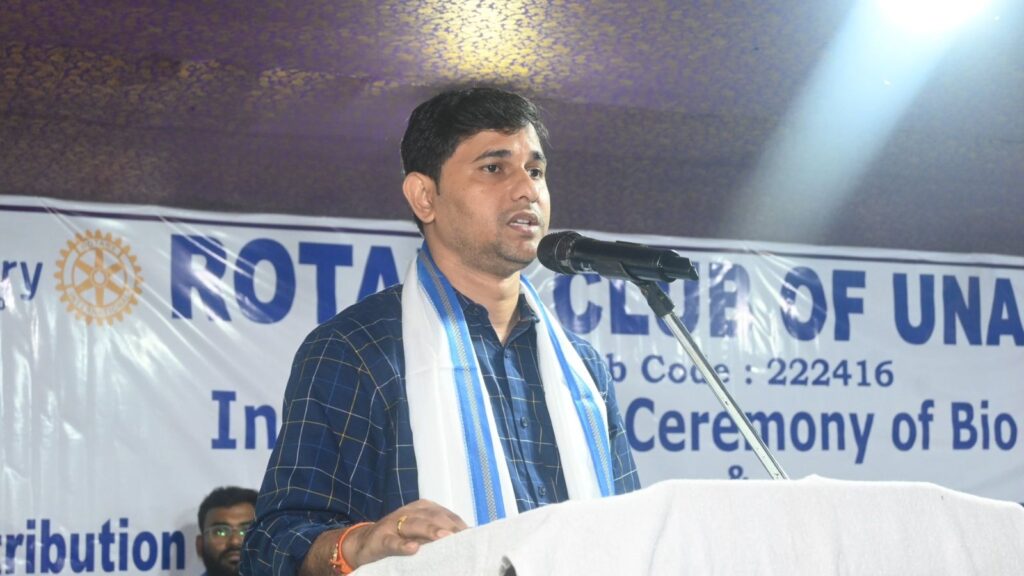Tripura Minister Sudhanshu Das recently called for the establishment of a “Sanatan Dharma Board” to safeguard Hindu temples, drawing a parallel with the Waqf Board for Muslims. The proposal comes at a time when Waqf reforms are under intense scrutiny, particularly in Karnataka, where property disputes related to religious institutions have become a topic of heated debate.
Das, who is currently serving as a minister in the state government, made this request during a public address, emphasizing the need for a dedicated body to protect Hindu temples and manage their properties effectively. His suggestion has sparked a wider conversation about the governance of religious institutions in India, particularly Hindu temples, and how they can be safeguarded from encroachments and mismanagement.
In his statement, Sudhanshu Das highlighted that just as the Waqf Board plays a crucial role in managing and safeguarding Muslim religious properties, a similar institution should be established to protect the assets and heritage of Hindu temples. He pointed out that many temples across the country are often left vulnerable due to a lack of proper administration and oversight. The proposed Sanatan Dharma Board would not only focus on the protection of temple property but also ensure the preservation of cultural and religious practices associated with Hinduism.
The proposal has gained significant attention, especially in the context of ongoing property disputes and the challenges faced by Hindu religious institutions. Temples in various parts of the country, including Tripura, have faced issues ranging from encroachment to mismanagement of funds. Many temples also struggle with ensuring the upkeep of their properties, which often hold historical, cultural, and religious significance.
One of the key aspects of Das’s suggestion is the creation of an institution that would have the authority to manage the assets of Hindu temples in a more organized and regulated manner. This would not only protect the physical infrastructure of temples but also ensure that they remain accessible and relevant to the Hindu community. The idea is to create a centralized board that would be responsible for overseeing the management of temples, ensuring they are protected from any potential threats, and that their resources are used in a manner that benefits the community.
Sudhanshu Das’s proposal comes at a time when issues related to the Waqf Board are also gaining prominence. In Karnataka, the government has been implementing reforms to streamline the management of Muslim religious properties under the Waqf Board. These reforms have led to discussions about the need for similar measures for Hindu temples, especially considering the rising concerns about the protection and proper management of religious sites.
The debate surrounding the establishment of a Sanatan Dharma Board is likely to continue, with supporters arguing that it is necessary for the protection and preservation of Hindu temples, while opponents may raise concerns about the feasibility of creating such an institution and the potential for it to become politicized.
Critics of the proposal have questioned whether creating another religious body would help solve the ongoing issues faced by Hindu temples or if it would add another layer of bureaucracy. They argue that the focus should instead be on improving the management of existing temples and addressing the specific problems they face, such as encroachments, corruption, and lack of resources. Some also caution that creating a board specifically for Hindu temples may lead to divisiveness and further complicate the relationship between different religious communities in the country.
Despite these concerns, there is no denying that Hindu temples face significant challenges when it comes to their upkeep and protection. In many areas, temples are struggling to maintain their physical infrastructure, manage their finances, and deal with encroachments. Establishing a dedicated body like the Sanatan Dharma Board could help address some of these challenges by providing a structured and organized approach to temple management.
As the conversation continues, it remains to be seen how the government will respond to Sudhanshu Das’s proposal and whether it will lead to the creation of a new body to protect Hindu temples in India. What is clear, however, is that the protection and preservation of religious institutions, whether Hindu, Muslim, or otherwise, remains a matter of great importance for the communities that rely on them.

